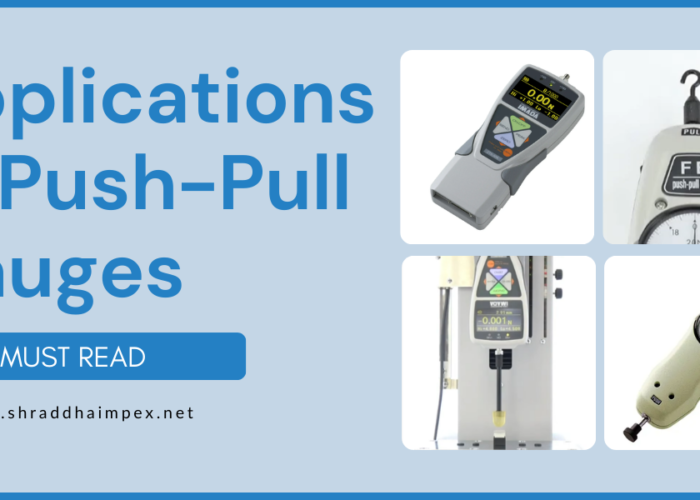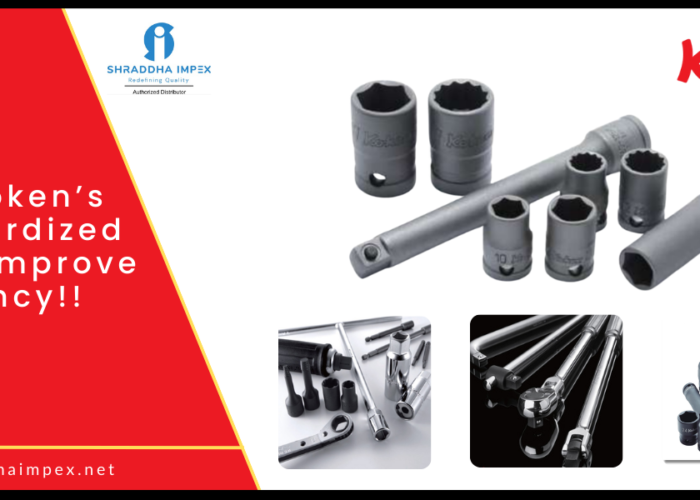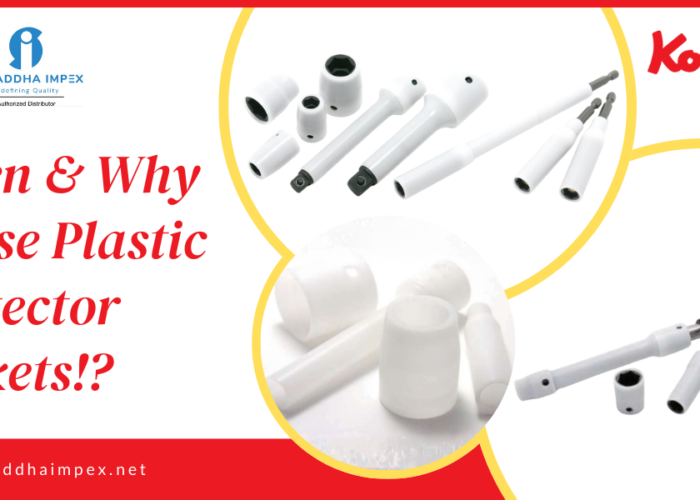Measurement accuracy is the heartbeat of successful product development. When engineers and designers rely on precise data, they can build products that meet customer expectations, comply with safety standards, and maintain consistent quality. From the earliest design sketches to the final quality checks, accurate measurement directly impacts every step of the development cycle.
Force measurement plays an equally vital role in product development, especially when testing materials, components, and finished assemblies. Industrial tools and measurement tools help teams capture the exact values they need, while precision tools from trusted brands like Imada India and other Made in Japan tools ensure reliability and longevity on the shop floor.
Why Measurement Accuracy Matters
- Ensures Product Quality: Accurate measurements prevent defects, reduce waste, and ensure that every product leaving the line meets the intended specifications.
- Reduces Costs: Detecting errors early through precise measurement tools saves time and money in rework and recalls.
- Enhances Safety: Precise force measurement uncovers weaknesses before they become hazards, protecting users and brand reputation.
- Supports Compliance: Many industries follow strict regulations. Accurate data proves compliance with international standards.
Key Concepts in Measurement Accuracy
1. Precision vs. Accuracy
- Accuracy refers to how close a measured value is to the true value.
- Precision indicates the repeatability of measurements. High precision means measurements are consistent, even if they are slightly off the true value.
A measurement system must be both accurate and precise to be trusted. Using precision tools and measurement instruments, such as high-resolution digital force gauges, helps teams hit both targets.
2. Calibration and Traceability
All good measurement tools require regular calibration to maintain accuracy. Calibration connects your measurement system to a known standard, which is traceable back to national or international standards. This traceability is crucial for industries where legal or safety requirements demand certified accuracy.
3. Environmental Factors
Temperature, humidity, and vibration can shift measurement results. Laboratories and production floors often maintain controlled environments to ensure that measurement tools perform within their specified limits.
Types of Measurement Tools Used in Product Development
1. Force Measurement Instruments
Force measurement gauges and load cells measure tensile, compressive, and shear forces. These are critical in testing material strength, durability, and assembly integrity.
- Imada Force Gauges: Reliable for consistent readings, with options for digital and analog displays.
- Load Cells: Paired with data acquisition systems for continuous monitoring.
2. Dimensional Measurement Tools
Tools like calipers, micrometers, and coordinate measuring machines (CMM) capture length, width, height, and shape with micron-level accuracy.
- Digital Calipers Offer quick readings and data output for statistical analysis.
- Micrometers: Specialized for small dimensions; high repeatability.
3. Surface and Roundness Measurement
Surface finish and roundness can affect friction, wear, and fit. Instruments such as profilometers and roundness testers quantify these characteristics.
4. Temperature and Humidity Sensors
Environmental sensors are embedded into manufacturing cells to log conditions, ensuring measurement tools operate within calibrated ranges.
The Role of Precision Tools in Quality Assurance
Precision tools maintain the highest standards in each phase:
- Prototype Development: Early models need exact dimensions to validate design concepts.
- Pilot Runs: Small batch tests use precise measurements to refine the production process.
- Full-Scale Production: Automated gauging systems verify every part on the line, reducing human error.
Brands known for precision, such as those under the Made in Japan tools label, offer robust instruments that withstand heavy use and deliver consistent accuracy day after day.
Imada India: Setting the Benchmark
Imada, a pioneer in force measurement, has a reputation built on quality and innovation. Imada India, the local distributor, supplies a broad range of Erich force gauges, torque testers, and automated test stands tailored for Indian industries.
- Ergonomic Designs: User-friendly interfaces reduce operator fatigue.
- Wide Measurement Range: From a few grams to kilonewtons.
- Data Connectivity: USB and Bluetooth options for easy data transfer.
By choosing Imada and Made in Japan tools, companies invest in instruments that offer long-term consistency and strong after-sales support.
Integrating Measurement Tools into Your Workflow
- Assessment: Identify critical dimensions and forces in your product design.
- Tool Selection: Choose appropriate industrial tools, such as precision calipers and force gauges.
- Calibration Plan: Establish a schedule aligned with manufacturer recommendations and industry standards.
- Data Management: Use software to collect, analyze, and report measurement data. This creates an audit trail and supports continuous improvement.
Best Practices for Maintaining Measurement Accuracy
- Routine Checks: Perform daily zero checks on digital instruments.
- Environmental Control: Maintain a stable temperature (typically 20°C ± 1 °C) and low humidity.
- Operator Training: Ensure staff know correct measurement techniques and proper tool handling.
- Documentation: Log all calibrations, adjustments, and repairs to maintain traceability.
Future Trends in Measurement Technology
- Smart Sensors: Embedded IoT devices will stream measurement data to the cloud for instant analysis.
- AI-Powered Analytics: Machine learning can predict tool drift and schedule preemptive calibration.
- Augmented Reality (AR): Overlay measurement data on the workpiece for guided inspections.
Staying aware of emerging technologies keeps your product development process ahead of the curve.
Measurement accuracy is more than a technical requirement; it’s a strategic advantage. By integrating precise force measurement, reliable industrial tools, and quality measurement tools from Shraddha Impex, Imada India, and other Made in Japan tools, you can boost product quality, reduce costs, and strengthen customer trust.
Embrace calibration, environmental control, and modern data analytics to maintain the highest standards. In the competitive world of product development, accurate measurement is your most powerful differentiator.


